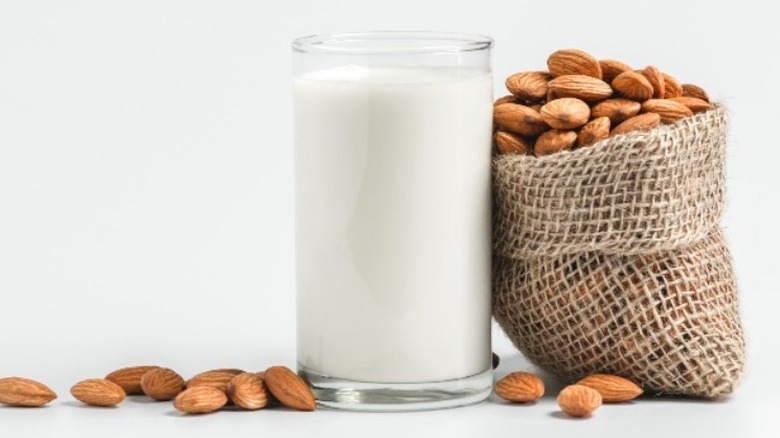
Why Plant-Based Milk is the Future of Sustainable Eating
With a surge in environmental awareness and health-conscious decisions, many people are turning to plant-based milk as a sustainable and nutritious alternative to traditional dairy. As people seek more environmentally friendly food choices, the demand for plant-based milk continues to grow. But what makes plant-based milk a pillar in the future of sustainable eating?
In this article, we’ll explore why plant-based milk is not only an excellent substitute for dairy but also a powerful choice for a healthier planet.
The Environmental Advantages of Plant-Based Milk
1. Lower Carbon Footprint
One of the most significant advantages of plant based milk is its reduced carbon footprint. Producing dairy milk contributes considerably to greenhouse gas emissions due to methane production from cattle. Studies indicate that switching to plant-based milk can reduce carbon emissions by up to 75% compared to dairy. For instance, almond, soy, and oat milk have notably smaller carbon footprints, making them more sustainable options.
2. Reduced Water Usage
Cows need a lot of water for drinking, feeding, and hygiene, making dairy production highly water-intensive. Producing a liter of cow’s milk requires approximately 628 liters of water. In contrast, almond milk, while needing a fair amount of water to grow almonds, still consumes much less overall. Oat milk is one of the most water-efficient plant-based milks, requiring about 48 liters of water per liter of milk. With droughts and water shortages becoming increasingly common, plant-based milk production offers a viable solution for conserving this precious resource.
3. Less Land Requirement
Dairy farming takes up a significant amount of land for livestock grazing and feed production, contributing to deforestation and habitat loss. Plant-based milk options, particularly oat and almond milk, require considerably less land than dairy. This reduction in land use means less deforestation, soil erosion, and habitat destruction, making plant-based milk an eco-friendly alternative.
Plant-Based Milk’s Health Benefits
Beyond its environmental advantages, plant-based milk offers numerous health benefits. For people seeking dairy alternatives, plant-based milk provides valuable nutrients without some of the drawbacks associated with cow’s milk.
1. Low in Saturated Fat and Calories
Most plant-based milks are low in saturated fat, making them a healthier choice for heart health. Almond, soy, and oat milk, when unsweetened, are generally lower in calories than cow’s milk. This is beneficial for those watching their weight or managing cholesterol levels.
2. Fortified with Essential Nutrients
Many plant-based milks are fortified with essential nutrients like calcium, vitamin D, and vitamin B12, making them comparable to dairy milk in terms of nutritional value. Soy milk, for example, provides a protein profile similar to cow’s milk, while almond milk is rich in vitamin E, a potent antioxidant that supports skin and immune health.
3. Allergy-Friendly and Lactose-Free
Since plant-based milks are naturally lactose-free, they are ideal for those with lactose intolerance or dairy allergies. They’re also generally easier to digest and less likely to cause the digestive discomfort associated with lactose.
The Variety of Plant-Based Milk Options
One of the most appealing aspects of plant-based milk is its versatility. With options made from nuts, seeds, grains, and legumes, there is something to suit every taste and dietary preference.
1. Almond Milk
Almond milk is one of the most popular plant-based milks and has a slightly nutty flavor with a smooth, light texture. It’s low in calories and an excellent source of vitamin E. Almond milk is ideal for smoothies, coffee, and baking, adding a subtle flavor to various dishes.
2. Oat Milk
Oat milk has a creamy consistency, making it a favorite for lattes and coffee. It’s naturally high in fiber, especially beta-glucans, which help reduce cholesterol levels. Oat milk is a great option for those who prefer a richer texture and want a sustainable choice with a lower water footprint than other nut-based milks.
3. Soy Milk
Soy milk is a high-protein plant milk and has a creamy texture and neutral flavor. It’s comparable to dairy milk in protein content, making it a good option for people who require more protein in their diet. Soy milk is versatile, suitable for cooking, baking, and drinking on its own.
4. Coconut Milk
Coconut milk has a unique tropical flavor and is a great addition to desserts and curries. While higher in fat, it contains healthy medium-chain triglycerides (MCTs), which provide quick energy. Coconut milk is an ideal choice for adding creaminess and flavor to smoothies, soups, and savory dishes.
Consumer Demand and Shifting Food Trends
Consumer demand for plant-based options is at an all-time high. As people become more informed about the environmental and health benefits of plant-based milk, the industry has responded with a diverse selection of products to meet various dietary needs. The plant-based milk market is projected to grow significantly in the coming years, indicating a lasting shift toward more sustainable and eco-friendly food choices.
How to Incorporate Plant-Based Milk into Your Diet
Making the switch to plant-based milk is easy. Here are a few simple ways to incorporate it into your daily routine:
- In Coffee or Tea: Use oat or almond milk as a dairy-free creamer.
- In Smoothies: Add soy or almond milk as a base for nutrient-packed smoothies.
- Baking and Cooking: Use plant-based milk as a substitute for cow’s milk in recipes for cakes, muffins, soups, and sauces.
- With Cereal or Oatmeal: Pour your favorite plant-based milk over cereal or oatmeal for a wholesome breakfast.
Conclusion
Plant-based milk is not only a delicious alternative to dairy but also a significant step toward more sustainable eating. With its environmental benefits, health advantages, and diverse options, it’s no wonder that plant-based milk is gaining popularity worldwide. As more people become aware of its impact, plant-based milk is set to become a staple in the diets of those looking to live sustainably and healthily.



